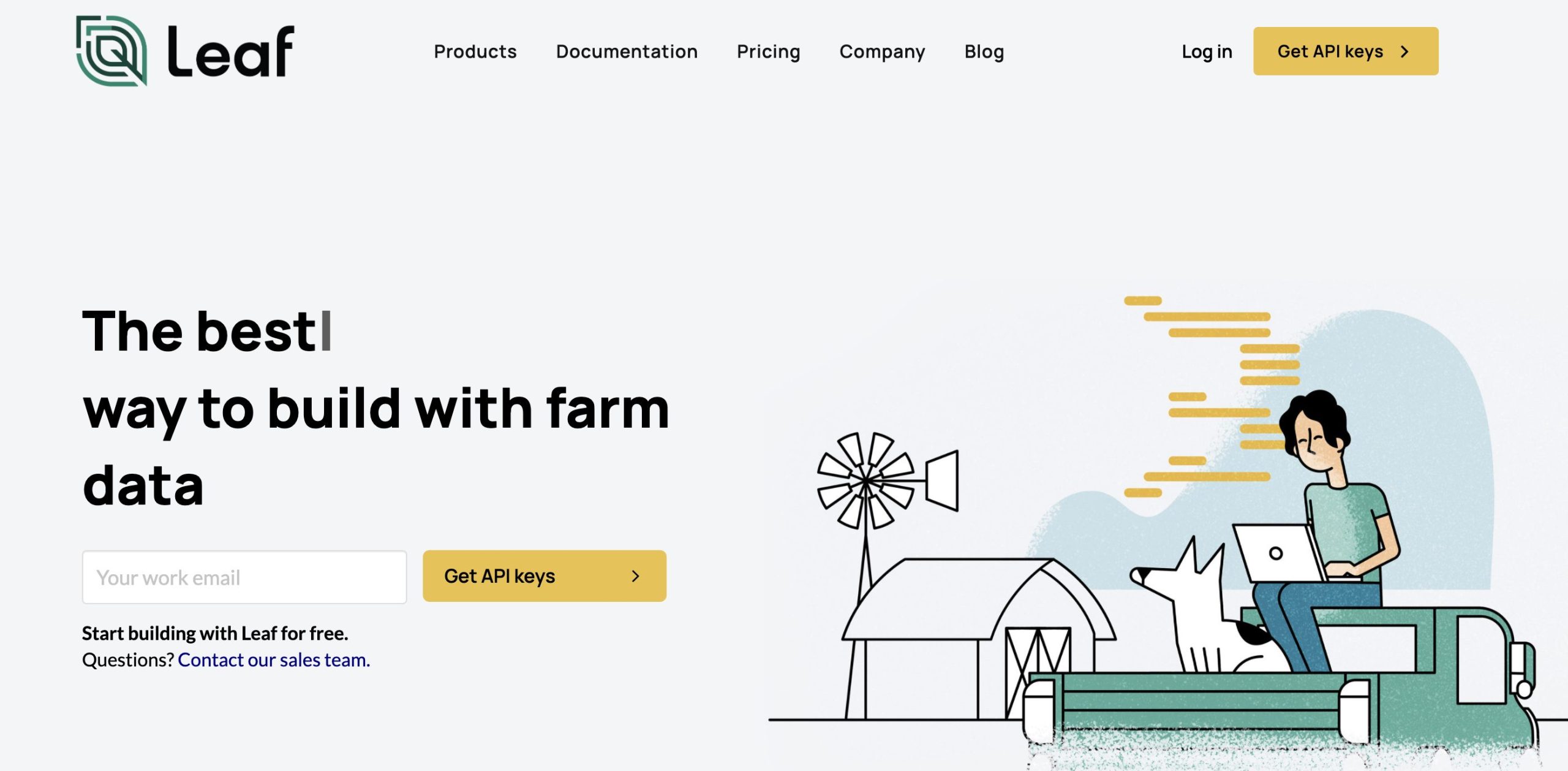Leaf Agriculture raises $5 million seed funding
Leaf Agriculture , a food and agriculture data infrastructure company, has raised $5 million in seed funding led by S2G Ventures with participation from all existing investors including Cultivian, Radicle Growth, and SP Ventures. Software developers and companies of all sizes use Leaf’s unified farm data API to send and receive user-permissioned data across platforms in a consistent, standardized way so they can focus all of their time on building new value for their customers.

Companies representing over 200 million acres are already using Leaf’s API to build and scale products for carbon & sustainability tracking, farm management, lending and insurance, biotech, land and input marketplaces, agronomy, food traceability, maintenance forecasting and more.
By removing data infrastructure barriers, Leaf enables agtech companies ranging from solo founders to the largest food and agriculture companies in the world to focus on their core products and launch, go to market and scale faster. Leaf’s unified farm data API allows anyone to send and receive user-permissioned data across platforms in a consistent, standardized way, eliminating the need to build and maintain multiple integrations and related backend infrastructure.
“We started Leaf after experiencing the frustrations of developers working in food and agriculture first hand. Before Leaf, large and well-funded development teams would struggle for years to overcome inconsistent data access, formats, translation, organization, and integrations. Now, these same companies and teams of all sizes use Leaf to focus on building new value for their customers instead of maintaining redundant backend infrastructure.” – Bailey Stockdale, CEO and co-founder of Leaf.
Leaf will use the funding to grow its commercial, customer success and development teams globally, add support for new data types and launch new services like Field Operations to further realize its vision of empowering software developers to solve some of the world’s most valuable health, economic and environmental challenges.

